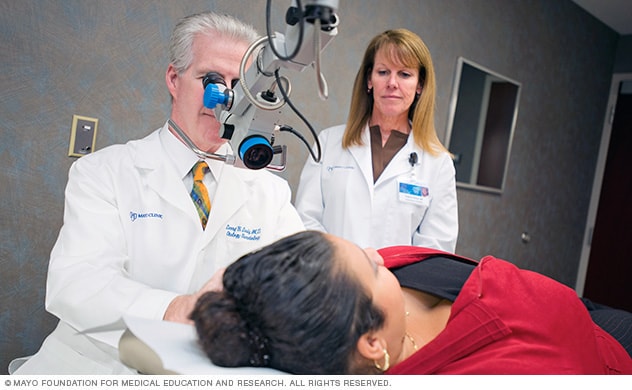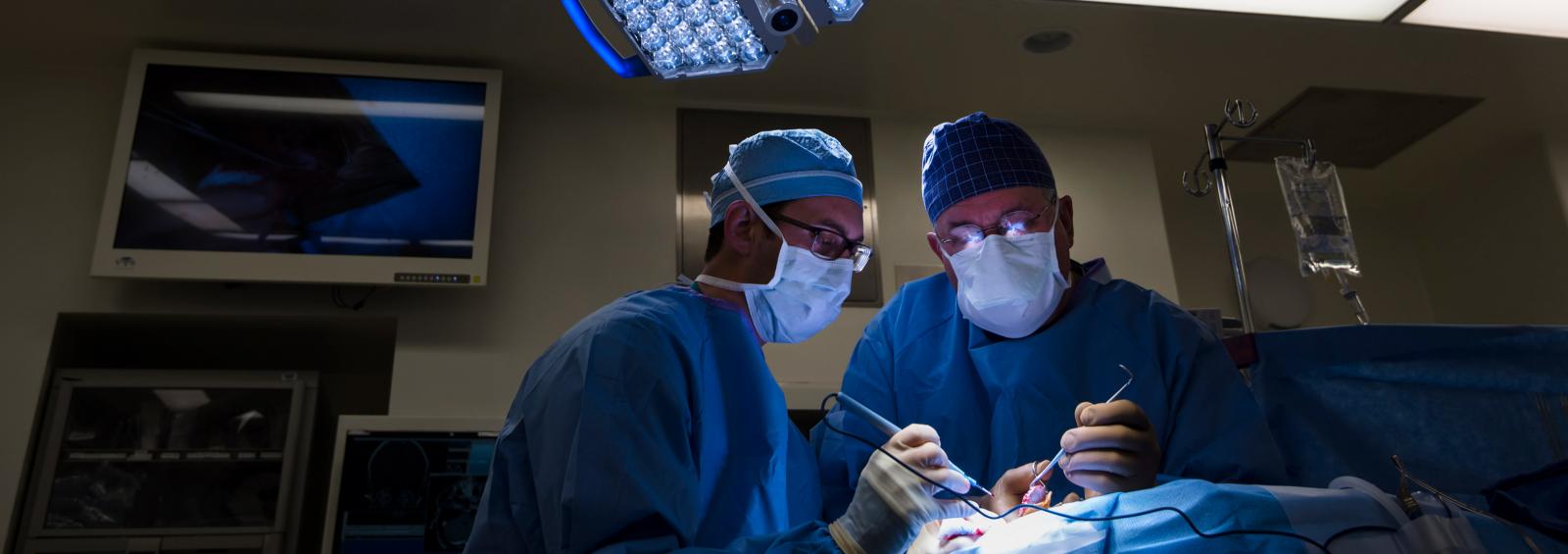Protecting Your Voice: How a Voice Specialist Can Treat Strain
Protecting Your Voice: How a Voice Specialist Can Treat Strain
Blog Article
Discovering the Field of Otolaryngology: What to Anticipate When You Speak With an ENT
Otolaryngology, frequently referred to as ENT, incorporates the medical diagnosis and therapy of nose, ear, and throat problems. For those experiencing related problems, consulting an ENT professional can provide quality and relief. Understanding what to expect during such assessments is crucial for effective interaction and care. This overview will detail essential elements of the ENT experience, including typical reasons for brows through and the procedures included in medical diagnosis and therapy.

Recognizing Otolaryngology: A Summary
Otolaryngology, often referred to as ENT (Throat, ear, and nose) medicine, is a specialized branch of medicine that concentrates on the medical diagnosis and therapy of conditions influencing these essential locations of the human body. This field includes a large range of problems, including those related to hearing, equilibrium, breathing function, and speech. Otolaryngologists are educated to handle both clinical and medical therapies, using advanced techniques and innovations. Their knowledge prolongs past traditional disorders, addressing problems such as allergic reactions, sinus infections, and hearing loss. Additionally, they play a vital function in the monitoring of head and neck cancers, supplying comprehensive treatment tailored to specific patient requirements. In general, otolaryngology remains essential for preserving wellness and high quality of life in damaged people.
Typical Factors to See an ENT Expert
Numerous individuals look for the expertise of an ENT expert for a variety of factors, showing the varied nature of problems that affect the nose, throat, and ear. Typical issues consist of chronic sinusitis, which frequently results in persistent nasal blockage and face pain. Allergies and their connected signs, such as itching and sneezing, also trigger visits to these experts (ENT Doctor). Hearing loss, whether abrupt or gradual, is an additional considerable reason for examination. Additionally, people may seek evaluation for throat disorders, including persistent hoarseness or ingesting troubles. Rest apnea, defined by interrupted breathing throughout rest, is often dealt with by ENT professionals as well. Each of these conditions highlights the significance of specialized care in handling complex ENT-related health concerns
Planning for Your ENT Appointment
When planning for an ENT consultation, it is crucial to gather pertinent information and consider any type of specific worries. Patients ought to assemble a comprehensive case history, consisting of previous ear, nose, or throat concerns, surgeries, and current medicines. Recording symptoms-- such as period, seriousness, and regularity-- can provide useful understandings for the ENT specialist. Additionally, people must prepare a checklist of inquiries they desire to ask, guaranteeing that all worries are addressed throughout the visit. Bringing along any kind of relevant clinical records or examination outcomes can further aid the ENT in comprehending the client's condition. Ultimately, clients should verify their appointment details, including time, day, and place, to reduce any last-minute confusion. Proper preparation can improve the efficiency of the examination and bring about better results.
What to Expect During the Assessment
As the appointment starts, the person can anticipate to engage in a comprehensive discussion with the ENT specialist about their signs and symptoms and case history. The expert will ask concerning the duration, frequency, and severity of signs and symptoms such as hearing loss, nasal blockage, or aching throat. Additionally, the patient's previous clinical problems, medicines, and any appropriate family history will certainly be reviewed, aiding the expert in creating a full understanding of the patient's health and wellness. The ENT might additionally inquire about way of living aspects, such as direct exposure to irritants or irritants. This open dialogue develops a structure for the assessment, ensuring that the client's issues are attended to and establishing the phase for any type of needed assessments or recommendations for treatment.
Diagnostic Examinations and Treatments in Otolaryngology
A series of diagnostic examinations and treatments are essential in otolaryngology to accurately examine and identify conditions influencing the ear, nose, and throat. Usual tests consist of audiometry, which determines hearing feature, and tympanometry, assessing middle ear pressure. Nasal endoscopy allows visualization of the nasal flows and sinuses, while laryngoscopy checks out ent nose operation the throat and vocal cables. Imaging strategies, such as CT scans and MRIs, offer detailed sights of head and neck frameworks. Allergy screening might likewise be conducted to identify triggers for sinus or respiratory system concerns. These analysis devices allow ENT professionals to develop a detailed understanding of clients' problems, guaranteeing tailored and reliable monitoring plans. Correct diagnosis is crucial for successful therapy outcomes in otolaryngology.
Treatment Choices Supplied by ENT Specialists
ENT professionals offer a selection of therapy options customized to resolve certain conditions affecting the ear, throat, and nose. These therapies range from conservative approaches, such as drug and way of living adjustments, to more intrusive treatments. Allergic reactions may be managed with antihistamines or immunotherapy, while chronic sinus problems could call for nasal corticosteroids or sinus surgical procedure. For hearing loss, ENT professionals typically suggest hearing help or surgical treatments like cochlear implants. In instances of throat problems, alternatives can include speech treatment or surgeries to eliminate blockages. Furthermore, they may supply advice for taking care of sleep apnea, including using CPAP devices or surgical treatments. Generally, the objective is to enhance patients' high quality of life via personalized care and effective therapy techniques.
When to Seek Follow-Up Care With an ENT
When to look for follow-up treatment with an ENT specialist is vital for taking care of recurring symptoms or difficulties associated to throat, ear, and nose conditions, identifying. People ought to take into consideration scheduling a follow-up consultation if signs and symptoms linger in spite of first treatment, such as persistent ear pain, nasal blockage, or throat pain. Modifications in hearing, balance issues, or unusual nasal discharge may also require more examination. Additionally, if a patient experiences negative effects from prescribed drugs or has actually undergone an operation, follow-up care is necessary to keep an eye on recovery and attend to any type of worries. Timely consultations can guarantee reliable management get more of problems, avoid potential issues, and give assurance pertaining to one's wellness. Looking for follow-up care advertises aggressive health and wellness management in otolaryngology.
Regularly Asked Questions

What Qualifications Should I Look for in an ENT Expert?
When looking for an ENT professional, one should look for board certification, pertinent experience, and solid patient testimonials. In addition, efficient interaction skills and a thoughtful technique can greatly improve the general therapy experience.
How Do I Pick the Right ENT for My Requirements?
Choosing the right ENT expert involves assessing their qualifications, experience, and individual evaluations (Otolaryngology). It is necessary to consider their communication design and strategy to treatment, guaranteeing they line up with the person's certain health and wellness needs and choices
Exist Any Type Of Dangers Related To ENT Procedures?
The dangers related to ENT procedures might consist of infection, blood loss, anesthetic complications, and possible damage to bordering frameworks. Clients must discuss these threats with their medical professional to understand specific problems and warranty notified decisions.
Exactly How Can I Take Care Of Anxiousness Before My ENT Appointment?
To manage anxiousness prior to an appointment, individuals can exercise deep breathing exercises, envision favorable outcomes, prepare inquiries in advance, and seek support from close friends or family members, fostering a sense of confidence and peace.
What Should I Do if I Experience Side Effects From Treatment?
If negative effects from treatment take place, the person needs to without delay report them to their medical care company. Changes to treatment or additional treatments might be essential to guarantee safety and security and effectiveness in managing their condition - ENT Doctor. As the appointment begins, the person can expect to involve in a comprehensive discussion with the ENT expert about their signs and symptoms and clinical history. These analysis tools allow ENT specialists to develop a complete understanding of clients' click over here now problems, making sure tailored and effective monitoring strategies. ENT experts supply a selection of treatment alternatives tailored to resolve details problems affecting the nose, ear, and throat. When seeking an ENT professional, one need to look for board accreditation, relevant experience, and solid patient testimonials. Choosing the right ENT specialist entails examining their credentials, experience, and patient evaluations
Report this page